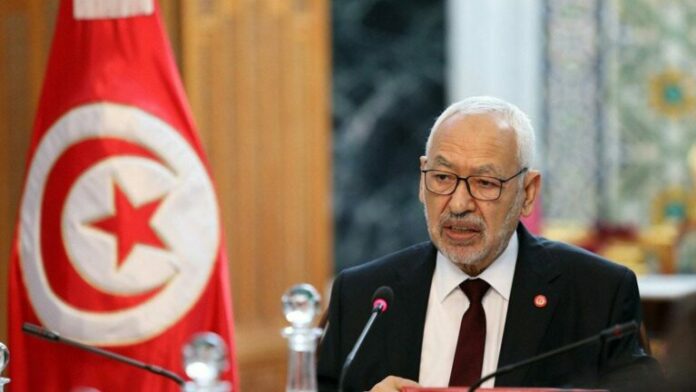Ennahda renewed its opposition to the actions of Tunisian President Kais Saied, stressing the need to end the exceptional situation as soon as possible and lift the freeze on the work of parliament, despite the total refusal to go back by Saied, who is moving forward with his procedures and is moving to amend the constitution.
It also expressed opposition to amending the constitution, a move that the Tunisian president alluded to a few days ago, saying he had been separated from the measurement of some parties in the country.
In a statement on Thursday evening, following a meeting of its executive office chaired by Rashed Ghannouchi, it stressed the need to speed up the end of the exceptional situation announced by Said on July 25th and the return of parliament to work.
Comprehensive national dialogue
In response to the Tunisian president’s remarks that he did not rule out amendments to the constitution, which he describes as “measured,” the movement said that “the 2014 constitution was widely agreed, was the result of a national dialogue, and included mechanisms to amend it from within, in accordance with a required consensus among all political parties.
“No turning back”
But Ennahda’s commitment to the need to get parliament back to work is rejected by Saied, who on more than one occasion stressed that “there is no way back and no dialogue except with the honest.”
This is also not heard by the Tunisian General Labour Union (UGTT), the country’s most influential trade union organization, which refuses to participate in a dialogue with Ennahda, which accuses it of aborting and disrupting its previous initiative to resolve and end the crisis in the country, and supports Saied’s decisions to freeze the powers of parliament and strip its members of immunity.
Meanwhile, the Tunisian president is facing increasing demands from political parties and national organizations, led by the Labor Union, pressure from internal public opinion and international parties, calling on him to unveil his plan for the next phase and warning him of the dangers of disrupting some government institutions, more than a month and a half after the suspension of parliament and the executive branch, a period during which no head of government has been appointed, nor has he announced any steps to end the exceptional situation in which the country lives.
Rifi-JDD











